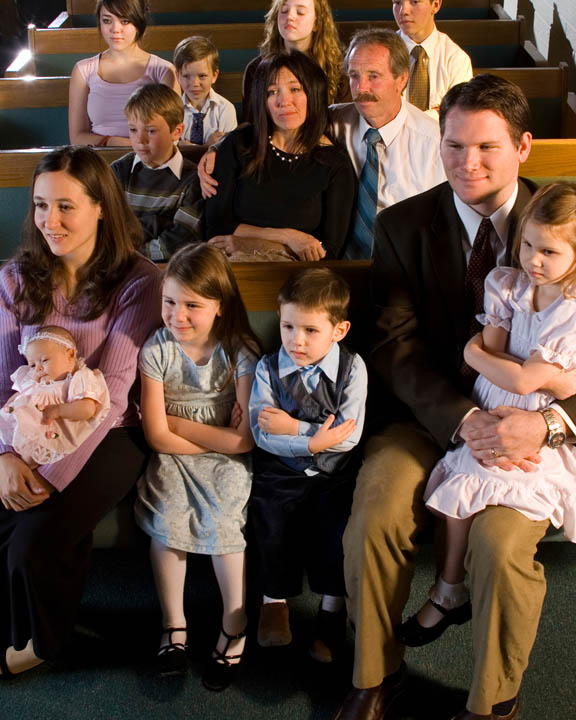 Mormons are known for their high moral standards. Some people think those standards are old-fashioned or out of touch, but Mormons know those standards protect them from many of life’s challenges and help them to live up to standards God himself has set.
Mormons are known for their high moral standards. Some people think those standards are old-fashioned or out of touch, but Mormons know those standards protect them from many of life’s challenges and help them to live up to standards God himself has set.
Too many of our young men and women are succumbing to the pressures imposed by a world saturated with evil messages and immoral behavior. Lucifer is waging a vicious war for the souls of young and old alike, and the casualty count is climbing. The standards of the world have shifted like the sands of a windblown desert. That which was once unheard of or unacceptable is now commonplace. The world’s perspective has been so dramatically altered that those who choose to adhere to traditional standards of morality are viewed as strange, almost as though they must justify their desire to keep the commandments of God.
But one thing is certain: the commandments have not changed. Let there be no mistake about that. Right is still right. Wrong is still wrong, no matter how cleverly cloaked in respectability or political correctness. We believe in chastity before marriage and fidelity ever after. That standard is an absolute standard of truth. It is neither subject to public opinion polls nor dependent upon situation or circumstance. There is no need to debate it or other gospel standards. (See M. Russell Ballard, “Like a Flame Unquenchable,” Ensign, May 1999, 85.)
People often think they’re modern and sophisticated when they ignore traditional values. However, ignoring God’s commandments always comes with consequences. Children grow up without the benefits of both a mother and a father. Poverty sometimes results, although poverty can, of course, happen to those who live righteously as well. Some diseases are passed only through immorality. Immoral choices tear apart families through pornography or infidelity.
Sheri L. Dew, a former leader of the Mormon Relief Society and now the head of a major religious publishing company said, “Several years ago, I participated in an international policy forum where the discussion moved from prostitution to pornography to abortion and so on. When the moderator invited me to comment, I noted that it seemed impossible not to notice a common theme—that every thorny issue had immoral underpinnings.” (See Sheri L. Dew: The Power of Virtue.)
Relative morality is a dangerous thing. We alter morality to suit the standards chosen by television and movies, rock stars, and political action groups. We let popular culture decide what is right, and yet popular culture has no authority, no long-range vision, and sometimes no responsibility for the consequences of the course they choose. They seldom care about the consequences…they’re just after the attention and influence. Consequences aren’t their problem. Too often people with influence say, “I just tell people what I think. What they do with it and what happens as a result isn’t my problem.” But, of course, it is.
There comes a time of reckoning for everyone. No one lives forever in a mortal state. Eventually we all die and stand before God to account for the choices we made, the influence we had over others, and the consequences of our actions. God made commandments and He didn’t make them for entertainment value. He meant them to be kept.
Jesus spoke firmly to the Pharisees about their habit of altering the gospel to suit current fads or personal “freedom.”
6 He answered and said unto them, Well hath Esaias prophesied of you hypocrites, as it is written, This people honoureth me with their lips, but their heart is far from me.
7 Howbeit in vain do they worship me, teaching for doctrines the commandments of men.
8 For laying aside the commandment of God, ye hold the tradition of men, as the washing of pots and cups: and many other such like things ye do.
9 And he said unto them, Full well ye reject the commandment of God, that ye may keep your own tradition (Mark 7:6-9, King James Bible)
Jesus understood the danger of constantly changing moral standards, based on nothing but personal opinions of people. Only in a world that consistently follows certain essential principles of morality are people truly safe from dangerous fads and whims. It’s easy to say, “But these are modern times and this is how we do things.” By the time we understand the dangers of that fad, it is usually too late.
As an example, using a non-moral issue, a number of years ago a state decided to mandate a method of teaching reading using the force of law. Teachers, who had far more experience than lawmakers, protested loudly that it would not work, and yet the decision was made by people with no real understanding of the process of teaching reading or the consequences of their decision. They only knew this was an “exciting” new fad, modern and popular. They jumped on the bandwagon of popular opinion. Four or five years later, they admitted the method was a complete failure and that thousands of children could not read as a result. Much of an entire generation suffered because lawmakers were more interested in being modern and popular than in worrying about the well-being of the children they were responsible for. They admitted their mistake, but they could not undo the damage caused by their irresponsible passion for fads. The children who could read were largely taught at home using methods that had long been proven worthy.
In the same way, many people today are making decisions about right and wrong without the eternal knowledge or authority to do so. By the time they see the dangers of their decisions and the damage it has caused those under their influence, it will be too late. They can apologize, but they may not be able to undo the damage caused by their choices.
We need not compromise. We must not compromise. The candle that the Lord has lighted in this dispensation can become as a light unto the whole world, and others seeing our good works can be led to glorify our Father in Heaven and emulate in their own lives the examples they have observed in ours.
Beginning with you and me, there can be an entire people who, by the virtue of our lives in our homes, in our vocations, even in our amusements, can become as a city upon a hill to which men may look and learn, and an ensign to the nations from which the people of the earth may gather strength,” (Gordon B. Hinckley, A City upon a Hill,” Ensign, Jul 1990, 2.)
About Terrie Lynn Bittner
The late Terrie Lynn Bittner—beloved wife, mother, grandmother, and friend—was the author of two homeschooling books and numerous articles, including several that appeared in Latter-day Saint magazines. She became a member of the Church at the age of 17 and began sharing her faith online in 1992.





